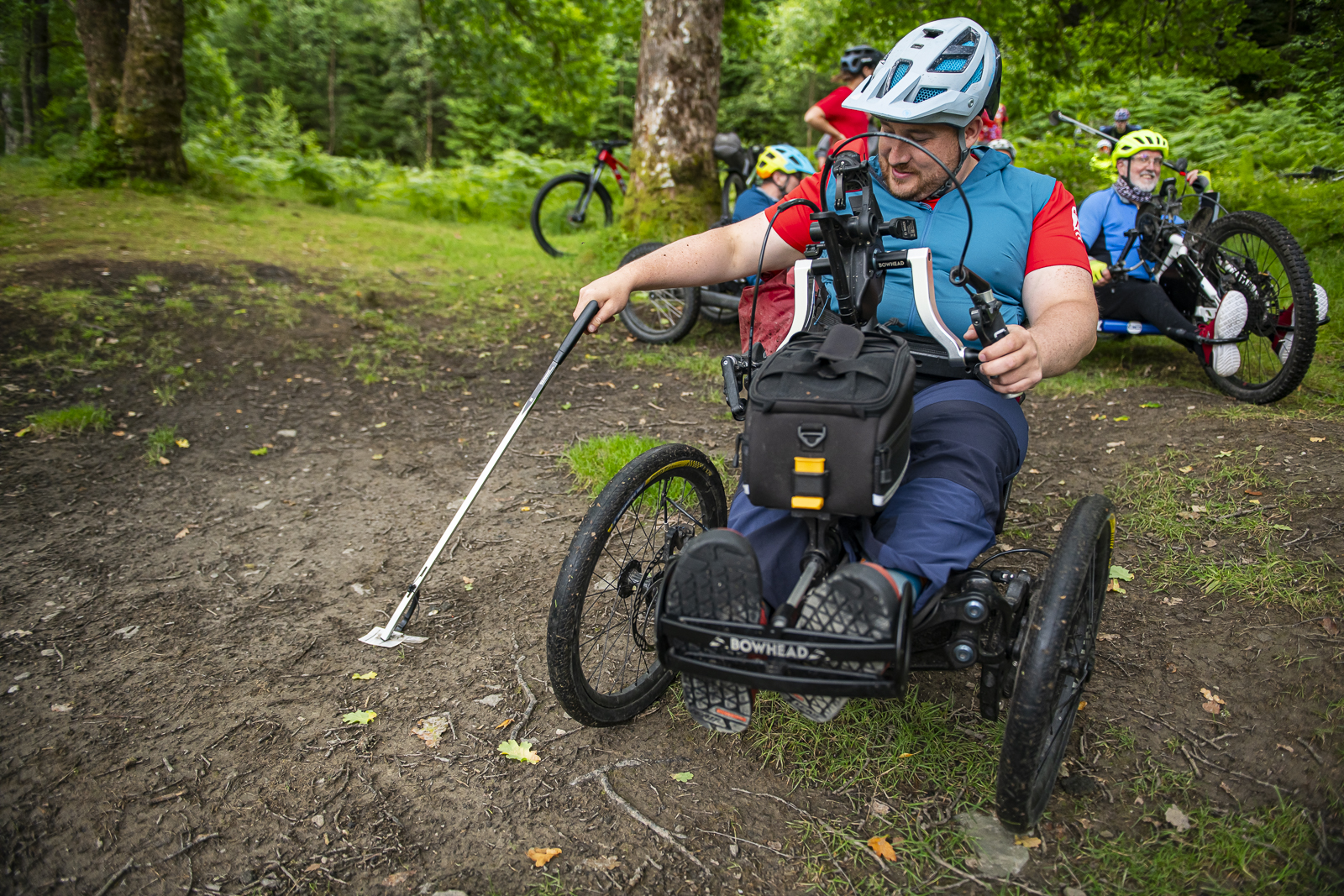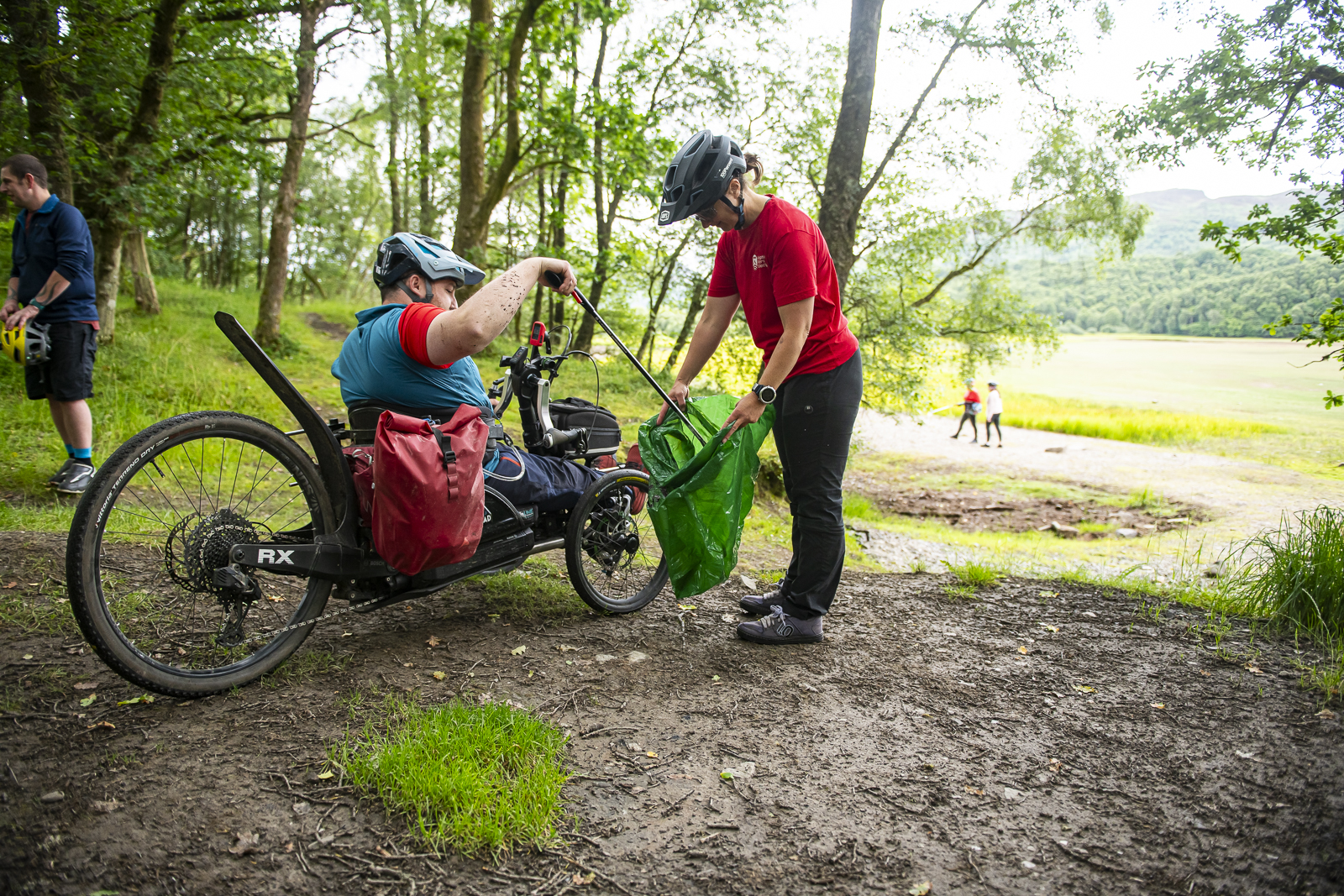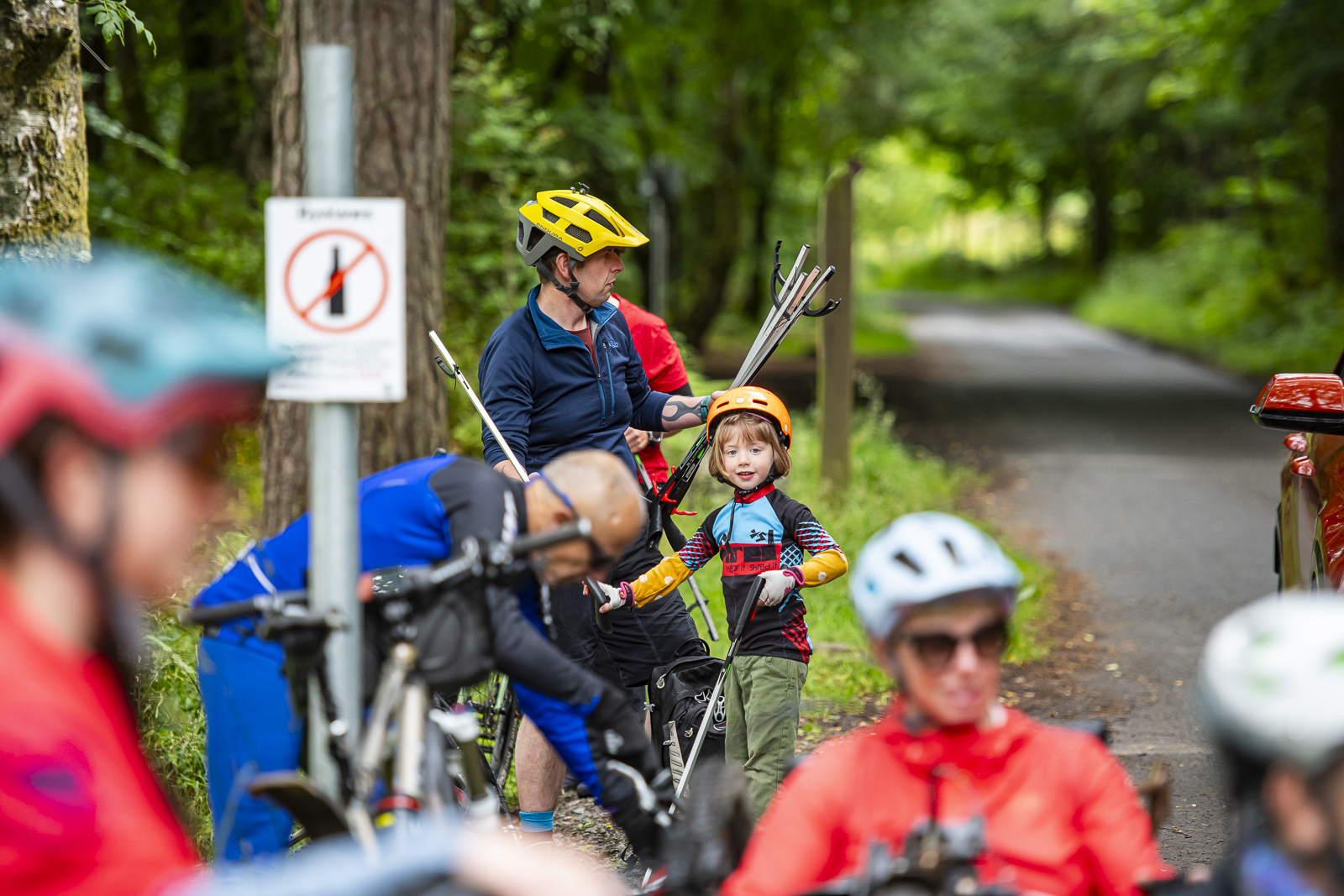Not for profit Trash Free Trails launches a new fund for outdoor educational experiences for Hardly Reached communities.
Hardly reached communities face double disadvantage when it comes to access to nature says legends Trash Free Trails.
A paper published by Wildlife and Countryside Link mapping the access to nature of neighbourhoods in the UK shows that more than one in three people live further than a 15 minute walk from nature, with those from ethnically diverse neighbourhoods having to travel 73% further than others to explore. (Wildlife and Countryside Link, 2023) Coupled with continued experiences of rural racism, many, notably members of the Global Majority, face persistent barriers to experiencing adventure. (Morris, 2023)
With so many people experiencing barriers to nature, it comes as no surprise the UK ranks lowest in the 14 European countries surveyed in 2022 for nature connectedness. (Ambio, 2022) Despite the recognised benefits of time outdoors for mental and physical wellbeing, the new government is yet to outline actions off the back of its Manifesto commitments to improve health and wellbeing through access to nature. (Wildlife Trusts, 2024)
Today however, the not-for-profit Trash Free Trails is taking steps of its own to address the issue of access to the outdoors by launching the ‘Purposeful Adventure Fund’, a new funding pot for small organisations and community groups facing barriers to enabling participants to experience outdoor and adventure education.

The Fund, supported by The North Face, the European Outdoor Conservation Association and the Hydroflask Parks For All Fund, builds on Trash Free Trails’ Community programme. The programme enables local leaders to invite and engage members of Hardly Reached groups to participate in trail cleaning.
In 2024 Trash Free Trails has worked with over 100 organisations, businesses and outdoor centres to deliver the programme, enabling over 200 people who are Hardly Reached by similar opportunities to take part in outdoor adventures and take positive environmental action.
Pedal Progression, a bike hire and coaching shop in Bristol and participating business in the programme, were supported by Trash Free Trails to engage vulnerable young people living in Bristol and enable them to learn mountain biking skills at Ashton Court, a local green space. Through the programme Pedal Progression have used their passion for riding and the removal of litter as a vehicle to encourage nature connection and wider environmental awareness.
Ollie Cain of Pedal Progression says, “The programme is about planting the seed and providing the opportunity for them to engage. Without the support of Trash Free Trails we wouldn’t have been able to offer this kind of opportunity, or engage these young people to who benefit massively from experiences like this.”

The Fund will be available for organisations across the UK who work with Hardly Reached communities, including members of the Global Majority, D/deaf and disabled people and vulnerable young adults, to deliver outdoor adventure experiences. The Fund will cover costs such as transport, clothing, food, accommodation, as well as enable ongoing vocational and training opportunities for delivering organisations.
“This programme is hugely valuable for communities across the UK, as we’ve seen with Pedal Progression.” says Leigh Rose from Trash Free Trails. “Some of the young people who participated live only a mile or so from Ashton Court, but due to various barriers they are unable to access it. The Purposeful Adventure Fund will provide the means for organisations to tackle these inequalities head on.”
The Purposeful Adventure Fund is now open for applications from community groups and for donations. Find out more here.
Trash Free Trails is a community not-for-profit on a mission to (re)connect people with nature through the simple yet meaningful act of removing single-use pollution from places they love.
They work across conservation, education, events and research. Their unique ‘State of Our Trails Report’ is a leading UK study on the levels of single-use pollution on recreational trails.



